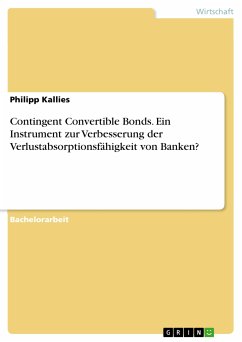This book is a comprehensive guide to the new generation of hybrid securities: subordinated and perpetual bonds with deferrable coupon first issued around 2003, and the youngest member of the hybrids family named CoCos (contingent convertibles) being a product of Basel III or European Union CRD IV regime (2014). Contingent capital constitutes a contractual recapitalization mechanism for troubled financial institutions. An increasing number of European banks have issued CoCo bonds in order to bolster their capital ratios. Following the EU pattern, CoCos issues have become increasingly popular within banks in Asia and the Pacific. The EU regulatory treatment of the contingent convertibles issued by banks and insurers together with bank bail-in instruments is at the forefront of the book. Furthermore, the book provides an overview of hybrids pricing and risk assessment approach and covers the non-voting preferred stocks as another hybrids class.
Dieser Download kann aus rechtlichen Gründen nur mit Rechnungsadresse in A, B, BG, CY, CZ, D, DK, EW, E, FIN, F, GR, HR, H, IRL, I, LT, L, LR, M, NL, PL, P, R, S, SLO, SK ausgeliefert werden.









